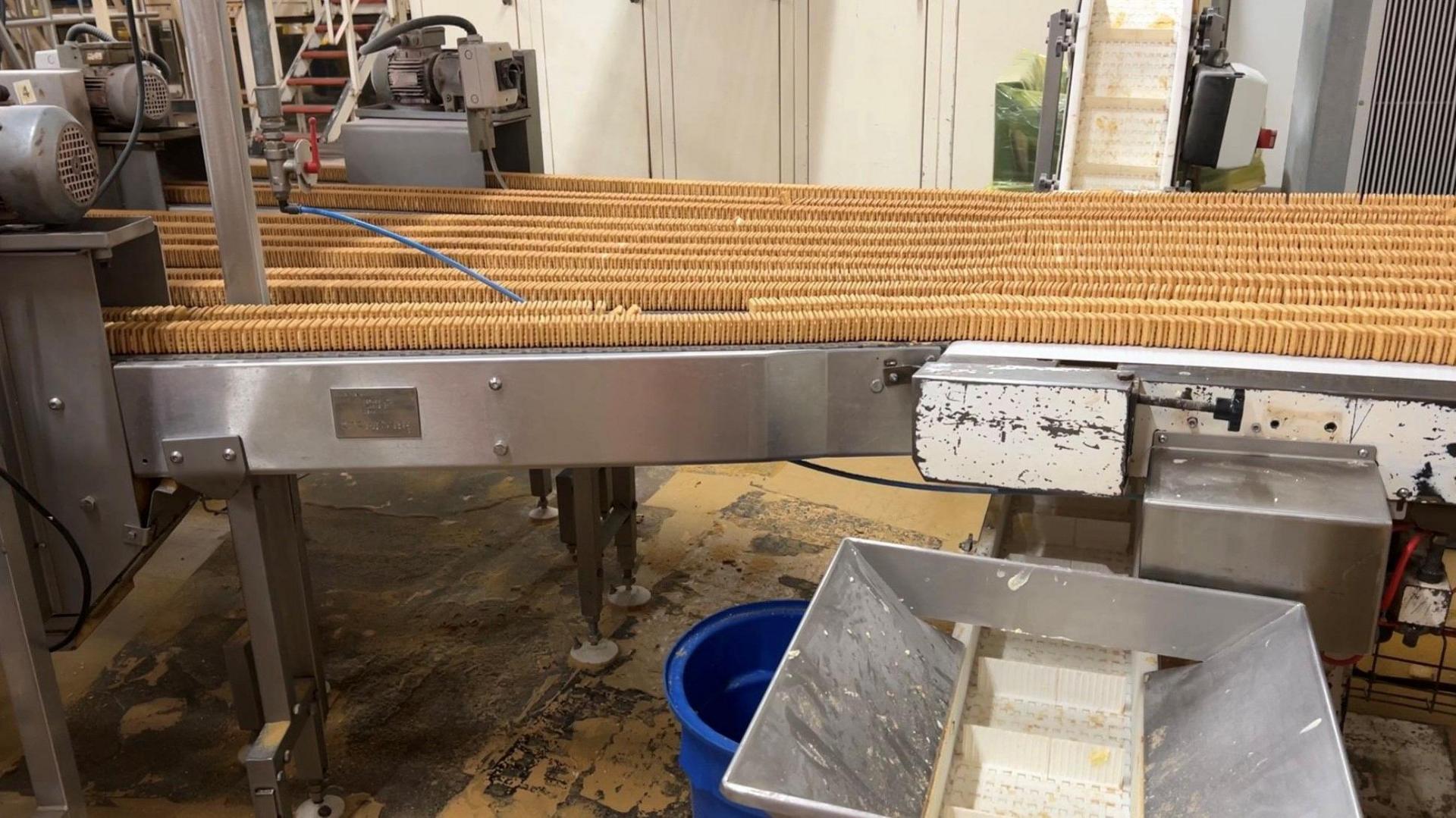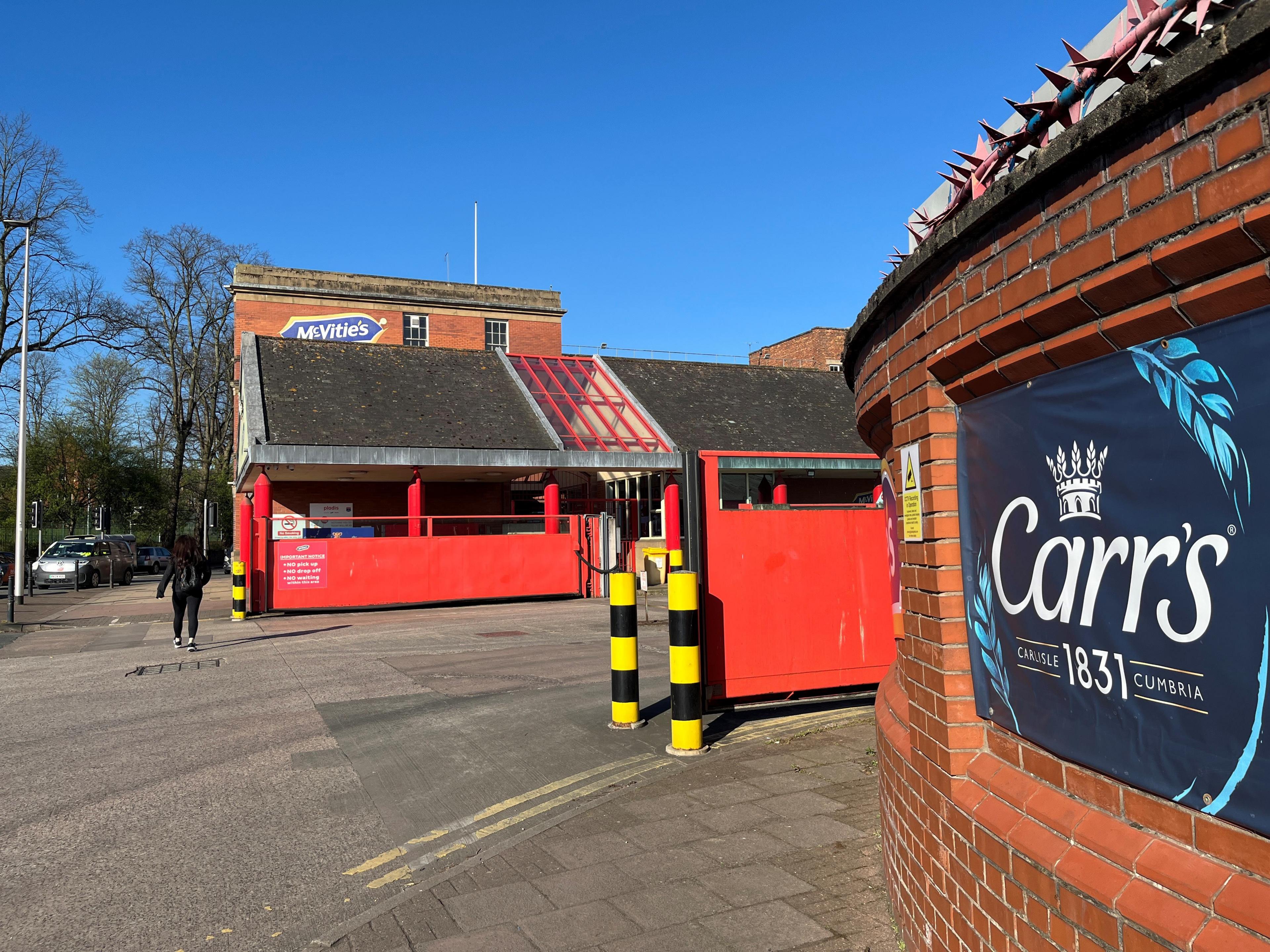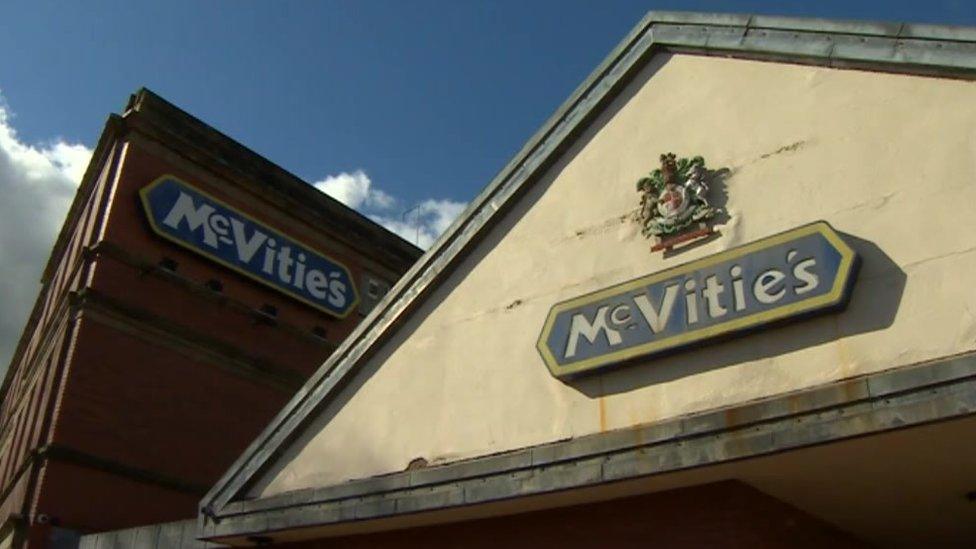Biscuit factory 'won't crumble' despite flood threats

The factory has flooded three times in the last 100 years
- Published
A century ago, Carlisle's biscuit factory was hit by its first major flood. It was flooded again in 2015 and last year had a close call. While there is always a fear of more, it is something those working there have been planning for.
It is not easy for a business to survive 200 years. The home of Carr's and McVitie's biscuits, among others, has overcome its fair share of challenges to stand the test of time - and not just the change in tastes.
Three major floods have hit the site in 1925, 2005 and 2015 - the latter just as the "ink was still drying" after it was bought by current owners Pladis, before the Cumbrian city was devastated by Storm Desmond.
"You can guess that I'm really not looking forward to 2025," says general manager Mark Ebdon. "Because if it follows form, we're due for a flood and I don't really want to test the flood defences - I'd rather not have to do that."
While flood defences can be up and working in about a minute, it would take just over eight minutes for the factory to be completely shut down.
Although there is no imminent threat of a new flood, staff still drill regularly for this eventuality, to ensure the city can continue to have the same distinctive smell it has had for nearly two centuries.

The factory's production line at work
The site produces 246 different products, including enough bourbon biscuits to go round the planet twice in a year. But it's not just the production line that would be disrupted, if it was flooded.
There are brick ovens, which are 295ft-long (90m), that are used to cook biscuits slowly and at a low temperature.
"It's unique to this site, you don't see it anywhere else," says Ian Beattie, site engineer project manager.
Mr Ebdon adds: "If cold water was to hit a warm brick oven, it would shatter it."
And once the ovens are switched off, it would take a week for them to warm back up to the right temperature.

The factory has invested in flood defences since the 2015 floods
The factory, which was built near the rivers Eden and Caldew, had a close call just last year and Mr Ebdon fears it may flood again.
"We got close, the River Eden got up to 5.96m (19.5ft) in height and every 15 minutes I was having an emergency huddle in the security hut, trying to decide whether we were going to stop the factory.
"I decided that at 6m we'd stop - and I never had to make the call."
After the 2015 flood - which led to some shops running out of biscuits made at the factory - the company installed new flood defences, barriers and doors to protect the site.
"We also have four large pumps at the rear of the factory that make sure this factory is more sustainable going forward and that we won't have to spend the kind of money that we have to, to recover from a flood," Mr Ebdon says.
Listen on BBC Sounds: The Secret Life of the Carlisle Custard Cream
The factory - the oldest still to be operating in the world - is the legacy of JD Carr, who opened a small bakery in Carlisle in 1831.
He later became somewhat of a Henry Ford of the world of biscuits, bringing mass production to the sector when he moved operations to the factory that is still in operation today.
One type of biscuit was created in the city to help its people - an unleavened table water biscuit that the poor could afford, which is still made to a secret recipe today.
"[JD Carr] was trying to do something for the poor and give them bread in their daily diet and actually help their health and welfare, whilst growing his baking business," says Mr Ebdon.
"He very quickly worked out that he could answer two questions, he could create a sea biscuit, but also create a product the poor could afford."

Mark Ebdon says he is humbled to work at a factory steeped in history
The factory has changed ownership over the years and a wide range of products have been made here.
JD Carr was a "great custodian" of biscuit-making, Mr Ebdon says, and old recipe books are still kept here in the factory's offices.
It is also one the city's biggest employers. About 1,200 jobs are directly connected to the site, on the outskirts of the city centre. Many generations of the same family have worked there since it opened in 1835.
Mr Ebdon feels a connection to the founder of the business and the two share a significant date.
Mr Carr died on 6 April, which is Mr Ebdon's birthday.
"It's a privilege for me to be the leader of this factory, it does humble me because I'm following in great footsteps."
Follow BBC Cumbria on X, external, Facebook, external, Nextdoor and Instagram, external.
Get in touch
Do you have a story suggestion for BBC Cumbria?
- Published11 April 2016

- Published7 April 2016
